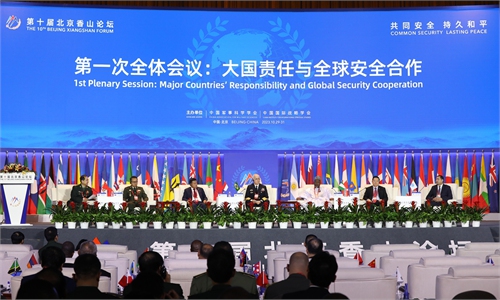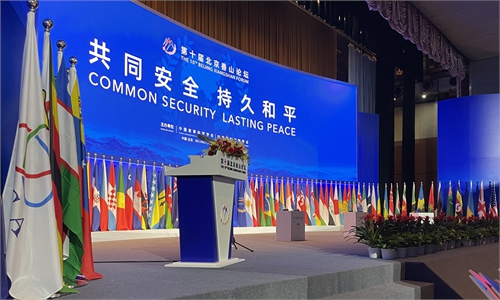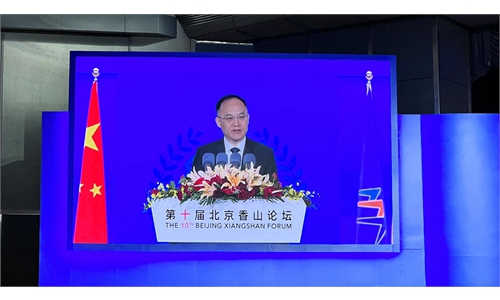Despite divergent security concepts, China, US should cooperate for world peace and stability
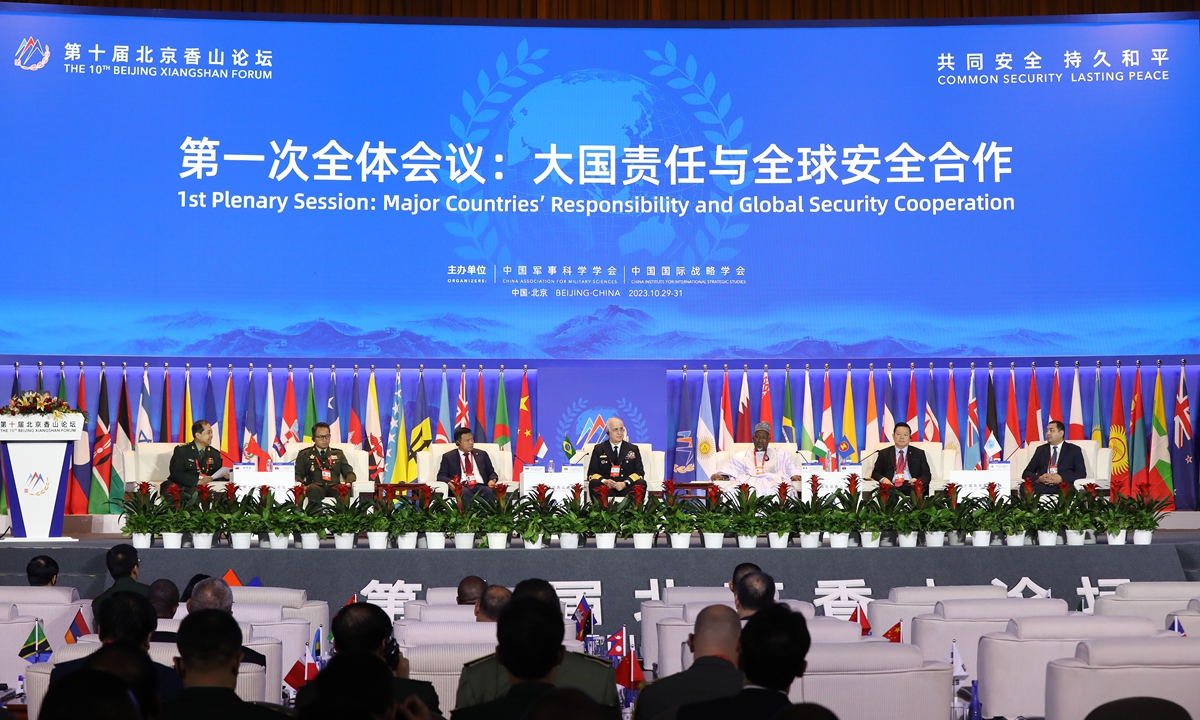
The first plenary session of the 10th Beijing Xiangshan Forum is held on October 30, 2023 with the focus on major countries' responsibility and global security cooperation. Photo: VCG
Peace and stability are two major issues crucial to the survival and well-being of humanity. Achieving, ensuring, and maintaining lasting security are significant issues directly related to the establishment of a just and reasonable international order.In the face of a critical moment of world peace and development, Chinese President Xi Jinping put forward the Global Security Initiative (GSI) in April 2022. China also adheres to a national defense policy that is defensive in nature, as clearly stated in the newly revised National Defense Law.
Since 2009, China's total defense expenditure has ranked second in the world, but it is less than one-third of that of the US, which ranks first. Over the years, China's defense expenditure has accounted for less than 1.5 percent of GDP. By 2023, China's defense expenditure will be equivalent to 26.2 percent of the US'. China's defense expenditure is open and transparent. Since 2007, China has annually reported its military expenditures to the Secretary-General of the United Nations.
Working for the progress of humanity and the common good of the world is China's responsibility to the international community. In over 70 years since the founding of the People's Republic of China, there have been very few armed conflicts with neighboring countries, and they were all defensive counterattacks carried out when national territorial sovereignty, maritime rights and interests, and the lives and property of the people were severely threatened, and peaceful means were exhausted.
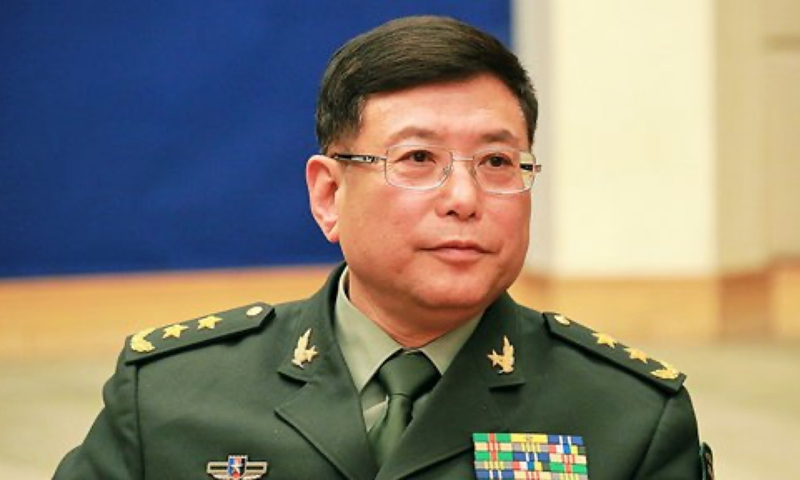
Lieutenant General He Lei Photo: Xinhua
China is the second-largest contributor to UN peacekeeping funding and the largest troop-contributing country among the permanent members of the UN Security Council. Since the first deployment of military observers in 1990, China has sent nearly 50,000 peacekeeping personnel to participate in 25 peacekeeping operations. Currently, an 8,000-strong standby peacekeeping force has been formed. Since 2012, China has organized or participated in international rescue operations such as the search for the missing Malaysia Airlines Flight MH370, the fight against the Ebola virus disease in Africa, earthquake relief in Nepal and recent earthquake relief in Afghanistan. After the outbreak of the COVID-19 pandemic, China provided assistance to the military forces of more than 30 countries, including Pakistan, Cambodia and Ethiopia, and received widespread praise from recipient countries and the international community.
China-US relations are the most important bilateral relationship in the world. Due to differences in history, culture, social systems and national strategies, China and the US have different global security concepts, which have different significant impacts on the establishment of a just and reasonable international order and world peace and stability.
In June 2023, at the 20th Shangri-La Dialogue held in Singapore, US Secretary of Defense Lloyd Austin delivered a speech titled "A shared vision for the Indo-Pacific." The central argument was that security in the Indo-Pacific region could only be achieved under US leadership. However, every country in the world is a sovereign state, regardless of its size, strength or wealth, and they are all equal. No country should assume the role of a leader, display arrogant, interfere in others' affairs, or impose its terms on other nations.
China has consistently advocated that the affairs of a country should be decided by its own people and that regional and global affairs should be handled through consultation among countries. Contrary to this perspective, Austin's speech emphasized the necessity of US leadership in the Indo-Pacific region, which relies on creating cliques such as AUKUS, the Quad, and the US-Japan-South Korea alliance, as well as engaging in confrontations. This approach does not bring peace and security to the Asia-Pacific region. Instead, it fosters instability, disunity, and even turmoil and confrontation.
China's GSI promotes safety and security for all countries. It is not about sacrificing the security of other countries to ensure China's own security. It emphasizes comprehensive security in all aspects, ensuring that human beings live in a safe and stable environment. It promotes cooperative security, where countries coexist on an equal footing and jointly maintain security. It aims for sustainable security, which means permanent security.
In addition to establishing the correct global security concept, I believe the following three points should be implemented: First, we should fully implement the important consensus reached by the heads of state of China and the US. Second, there should be sincerity and genuine efforts made to strengthen communication and exchanges. Third, it is essential to rectify provocative actions that interfere in China's internal affairs.
I suggest the formulation of an agreement between China and the US to implement the consensus of the heads of two states or an agreement on non-interference in internal affairs. I believe this should be the most important, highest-level and most reflective of sincerity in the legal construction that China and the US can undertake to make greater contributions to maintaining a just and reasonable international order, world peace and stability.
The author is a PLA Lieutenant General and former vice president of the Academy of Military Sciences of the PLA. This is extracted from his speech during the 10th Beijing Xiangshan Forum on October 30. opinion@globaltimes.com.cn
